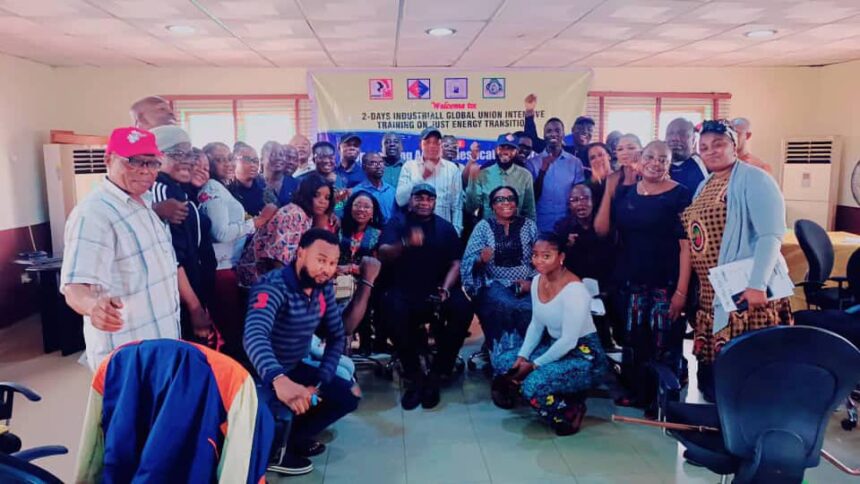Members of the National Union of Electricity Employees (NUEE) have decried the Federal Government’s lacklustre approach to including its members in the just transition plans cautioning that by their exclusion, the government is leaving behind a crucial segment of society.
They made the observation at the Industrial ‘Just Energy Transition’ Project which had as theme: Amplifying the Workers’ Charter of Demand on Just Energy Transition for Trade Unions in Nigeria
Welcoming participants at the event, General Secretary of NUEE, Comrade Dominic Igwebike said that electricity workers are not only crucial but are on the frontlines of the climate change impacts and effects.
He said the topics for the engagement were deliberately chosen to galvanise the union members to action in ensuring that their voices are heard as the Nigerian government excalates its just energy transition programmes including the drive for green jobs.
Speaking on Introducing the workers charter of demand with a gendered perspective, Remi Ihejirika said that the charter developed through the collaboration among Nigeria trade unions namely -NUEE, Nigeria Union of Petroleum and Natural Gas Workers (NUPENG) and National Union of Chemical, Footwear, Rubber, Leather and Non-Metallic Employees (NUCFRLANMPE) with the support from Friedrich-Ebert-Stiftung (FES) Nigeria and Mondial FNV in 2024/2025.
The charter seeks to ensure that Nigeria’s transition from a carbon based to a low carbon economy is just, inclusive and equitable. It highlights gender mainstreaming as a core principle and addresses the socio-economic challenges faced by women and marginalized workers advocating for protection, empowerment and participation in green job creation and policy decision –making.
It demands job security for those currently employed in fossil fuel sectors and the creation of new job opportunities in renewable energy with special focus on ensuring women’s inclusion through targeted recruitment and career development programmes.
It equally recognizes that women workers often bear added vulnerabilities and advocates comprehensive social safety nets including unemployment benefits, income support and healthcare provisions adjusted for gender specific needs.
In his presentation on Impact and Effect of Climate Change on Workers, Philip Jakpor, Executive Director of Renevlyn Development Initiative (RDI) explained that in the docourse on climate change while the communities gather all the spotlight on impacts, little to nothing is mentioned about workers. In this category, he insisted that electricity workers are further upfront because they contend with the elements in the course of their work.
He noted that while the production and distribution of electricity is reliant on variables such as temperature, precipitation, wind speed, and wind direction, climate induced storms, flooding, and sea-level rise threaten substations, pipelines, transmission towers, and coastal power plants. Combined, these lead to stressed or volatile systems, damage to power lines, collapse of the grid and ultimately blackout.
Electricity workers who are tasked with repair work face occupational Hazards such as exposure to the high and low temperature, Storms, Floods and even electrocution leading to debilitation or death. They are also victims of displacement, financial distress, uncertainty as well as physical and mental health issues. These issues, according to him, are often under-reported.
In a second presentation on Galvanizing the media for effective reportage of climate and workers, Jakpor charged the unionists to evolve strategies of engaging the media to amplify their concerns. He pointed out however that in creating content for advocacy they must also identify and recruit experts who understand the workings of the media and government to be able to craft the right message and make impact.
He also advocated the use of the right media channels for communicating with the focus being largely on print and electronic to capture the attention of particular audiences and the online spaces to further amplify the message to younger or the borderless audience.
Electricity Workers Slam Exclusion from FG’s ‘Just Energy Transition’ Plans

Dotun Akintomide is a Reuters-trained journalist and a British Council–licensed Education Advisor. At Pan-Atlantic Kompass, he oversees editorial strategy, mentors contributors, and drives the platform’s digital storytelling initiatives.




